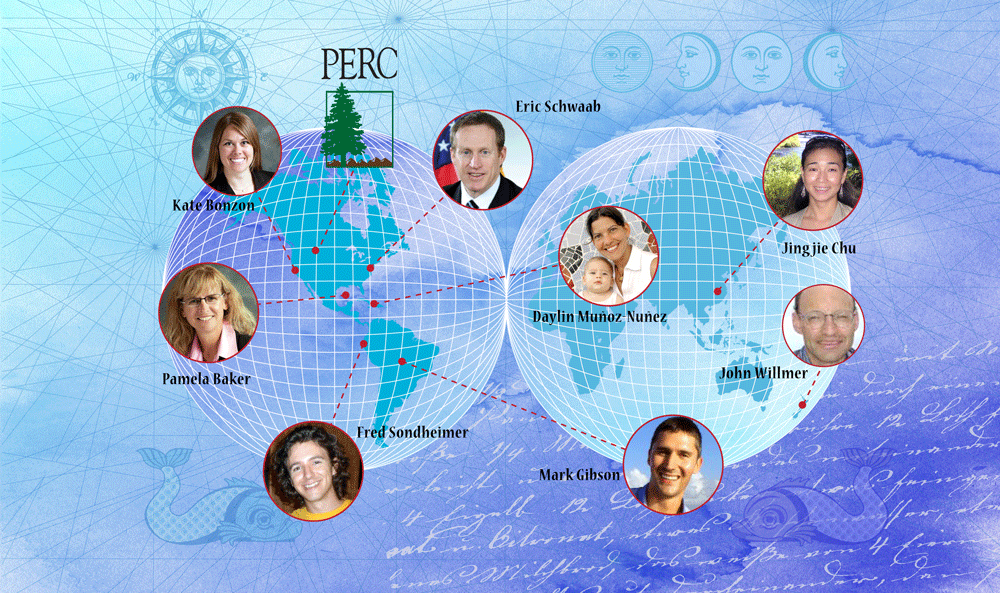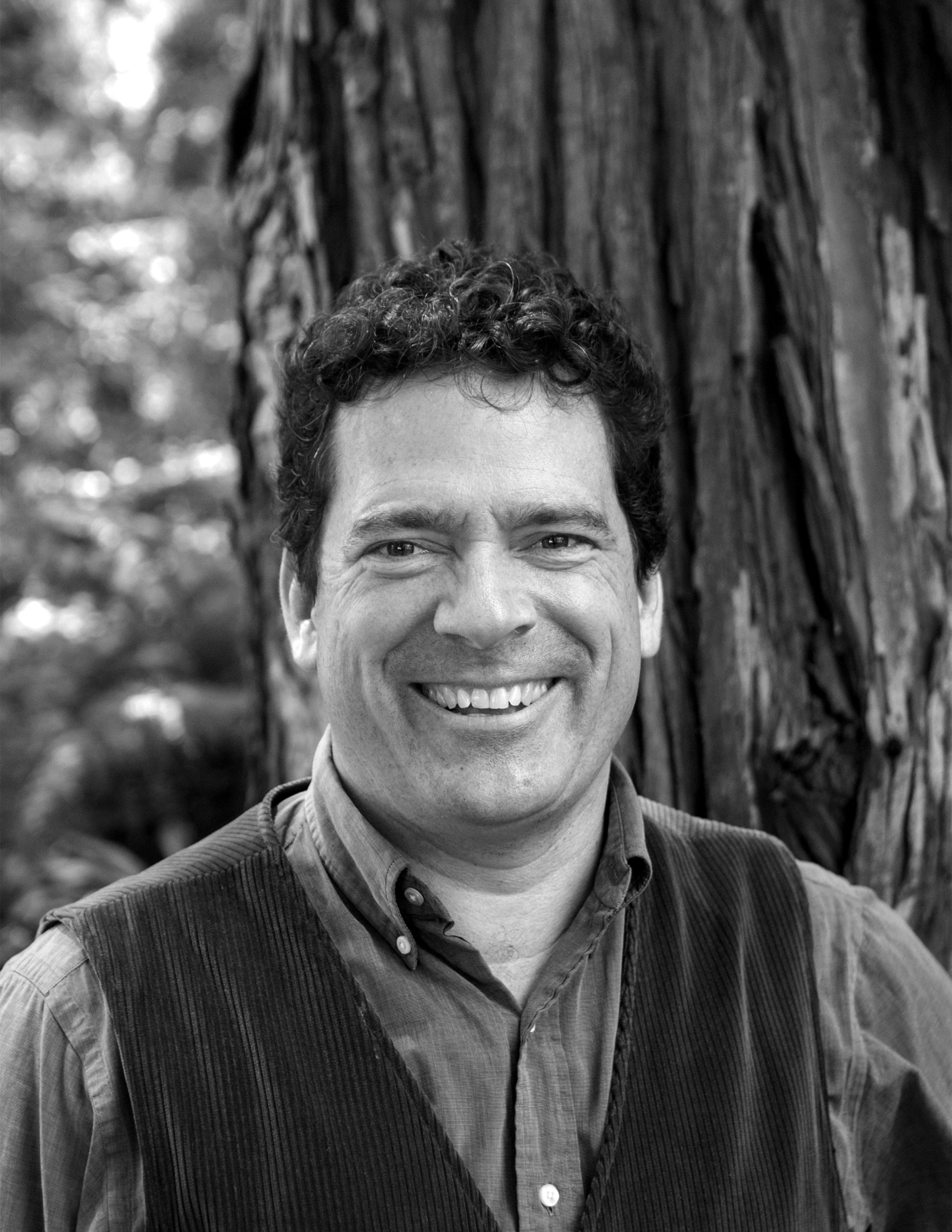If ecological gains come from placing value on natural resources, and value comes through voluntary trade, and trade requires secure property rights…. From where do property rights come?
More appropriately: from whom?
The answer points to a rather obscure and unglamorous—yet emphatically important—cadre of PERC Enviropreneur Institute alumni who have sought and found ways to unlock the vast potential of the wild. These people don’t launch business ventures for nature or set up green enterprises. They don’t buy or sell outdoor products or contract for environmental services. Instead, they pry open opportunities for others.
More specifically, they devote careers to fencing off living portions of the ocean. They replenish marine life and diversity to robust health. And they do so by establishing tenure-based programs of transferable quotas of fish: a diverse portfolio of management systems now commonly known as catch shares.
A catch-share fishery operates by establishing an annual “total allowable catch” with portions of the limit divided among participants. With a secure privilege to the total catch, fishers or fishery associations have the ability to catch a certain amount of fish each year. This system ends the insanity of a reckless, dumb, wasteful, and frenzied open-access “race for fish.”
First in theory, then in practice, scholars in economics and political science from H. Scott Gordon to Elinor Ostrom to Don Leal have long shown the transformation that occurs when fishing communities gain secure, exclusive rights to a portion of the marine resources they harvest.
By catching fewer fish over longer seasons, safer fishing practices earn higher profits, better wages, and contribute more back to society.
The alchemy is dramatic and fast. The value of the fish left in the sea becomes apparent. Ensuing ecological benefits generated by catch shares include less waste, cleaner harvests, faster recovery, gentler gear, fewer impacts, higher-quality products, and a reduction in the amount of unwanted and unintentionally captured animals, known as bycatch.
Economic payoffs are equally powerful: By catching fewer fish over longer seasons, safer fishing practices earn higher profits, better wages, and contribute more back to society through tax revenues and fees for science and monitoring.
In fact, if the United States established restorative catch shares nationwide it could generate $31 billion and create 500,000 jobs, while “meeting our national goal of rebuilding and sustaining” all fish stocks, said former assistant Administrator of the National Marine Fisheries Service, Eric Schwaab. Does his name ring a channel marker bell? It should. He was a 2003 PERC enviropreneur.
Schwaab achieved far more to secure free market environmentalism from inside the Beltway than a Tea Party protester outside of it.
Schwaab is far from a guvmint-bashing libertarian. The urban Democrat from liberal Baltimore spent decades in state agencies and park police before joining the Obama Administration as a high-ranking official who oversaw policymaking and enforced federal regulations to protect coastal environments. Yet there, working long hours behind the scenes, he aligned private profits with public interests, embedded marine tenure access rights in national policy, and boosted future prospects of fishers and fish. Schwaab achieved far more to secure free market environmentalism from inside the Beltway than a Tea Party protester outside of it.
He hardly accomplished this change alone. Help—both at home and abroad—came from other alumni. If Harriet Beecher Stowe was, in Lincoln’s words, “the little woman who wrote the book that made this Great War,” Pamela Baker was the little marine biologist who wrote the letters and pamphlets that triggered a catch-shares revolution in the Gulf of Mexico. After a summer at PERC in 2004, Baker sharpened her enviropreneurial tools to build a coalition of Gulf reef snapper fishers until a regional council approved rights-based quotas.
That system went live in 2007. “Everyone was holding their breath,” recalled Baker, “wondering, ‘What’s going to happen now?’ It was eerily quiet.” Days then weeks went by. The world didn’t come to an end. Finally, someone called up Baker and said, “You know, it’s just working. People are just out fishing. The overall limit was smaller than expected, but individual operating costs went down… revenue went up, and so hundreds of fishers made more money catching fewer fish.”
Americans weren’t the first to collaborate for a national catch-shares policy. That honor belongs to the Kiwis. John Willmer arrived in Bozeman in 2005 as a researcher and returned home to New Zealand as a well-equipped enviropreneur. As a policy analyst for the New Zealand Seafood Industry Council, he worked closely with government and environmental NGOs to improve the value and integrity of wild-capture fisheries, “integrating environmental, social, and economic goals” and making sure private funding helped fund the science behind setting appropriate catch limits.
Catch-share policies are controversial even in well-governed and affluent nations with a long history of property rights. So what happens farther afield, or further down the scale of the human development index? What do you do in Indonesia, let alone socialist Cuba?
Funny you should ask. Daylin Muñoz-Nuñez, a marine scientist who worked for the Cuban Ministry of Science, Technology and Environment, applied her enviropreneurial skill set to coordinate solutions for key fisheries in Mexico, Belize, and her home country of Cuba. Further offshore, she advanced the tri-national collaborative management of shark fisheries in the Gulf of Mexico, using innovative market-based tools that were modeled after catch shares.
Jingjie Chu aims to meet the ambitious goal of having 50 percent of global fisheries under catch-share management in ten years.
Her fellow 2011 enviropreneur Jingjie Chu works to scale up local lessons by encouraging agencies in places such as Vietnam, China, and Myanmar. “Rights-based fishery management works and a well-designed catch-share system customized to the local culture and history will work even in underdeveloped countries,” argues Chu, a natural resource economist in the Global Program on Fisheries at the World Bank, which aims to meet the ambitious goal of having 50 percent of global fisheries under catch-share management in ten years.
Her reference to a customized, well-designed catch-share system was far from hypothetical. A step-by-step “here’s-how-to-bake-a-perfect-catch-share” cookbook really does exist, bound up with dozens of proven recipes from Chile to Alaska and Spain to Japan. And Kate Bonzon is the 2003 enviropreneur who wrote it, along with several other related manuals, which are now marketed to the world.
Kate Bonzon customized a “here’s-how-to-bake-a-perfect-catch-share” cookbook that transformed small scale,commercial, and recreational fisheries globally.
After a summer at PERC, Bonzon went on to develop a nonprofit lending institution to smooth fishermens’ scary and financially painful transition from open-access regulation to a catch-share system. She then assembled and led a team—which, in the interest of full disclosure, includes your correspondent—who transform small scale, commercial, and recreational fisheries globally. As an authority on rights-based systems, cooperatives, and Territorial Use Rights to Fisheries, she knows what will or won’t perform.
Performance outcomes involve more than economic metrics. Ecologically careful, scientifically sound, and socially inclusive design can make or break a developing world’s fishery, noted Mark Gibson, class of 2012, who helped strengthen property rights in Latin American fisheries. To unlock a lasting market you must build in long-term resource health, take community needs into account, and plan bycatch measures to ensure diversity and abundance of non-commercial species
Fred Sondheimer, class of 2013, is building on Gibson’s lessons, especially in Ecuador, to increase stewardship incentives for shrimp and finfish harvesters. Both embrace conservation markets, but as a practical means, not an ideological outcome. “Catch-share programs and other rights-based management programs can be excellent tools for improving social well-being and ecosystem health,” maintains Gibson, “but they’ve got to be designed right.”
You start to detect linkages between these policy enviropreneurs. The findings of one here inform the actions of a second there; risks taken by a third make room for a fourth to negotiate with regional officials. That helps a fifth to scale a national policy, or a sixth build an institutional program that empowers a seventh to go farther offshore, bringing order to the largest and yet increasingly least tragic commons on earth. As each one makes waves, they collectively exert a tidal pull on marine politics, moving fisheries in progressive directions.
That’s the paradox of their silent upwelling. We snorkel out on reefs teeming with biodiversity. We press the firm, fresh meat on ice at a fish market. We admire the black ink on the balance sheets of commercial harvesting businesses. We celebrate all these visible gains from conservation markets. Yet all too often we ignore or downplay the human infrastructure, the boring incremental policy work, and the secure foundation on which they stand.
Like fishing nets, or the Internet, peer-to-peer network bonds may be invisible, but without them progress is impossible.
That’s a mistake. You find neither freedom nor fish where governance is weak and institutions absent. Like fishing nets, or the Internet, peer-to-peer network bonds may be invisible, but without them progress is impossible. Fishers look past the whitecaps to appreciate the currents and habitat contours deep beneath the waves. That’s where energy becomes life.
So next time you order a king crab sushi roll, or take home a grouper or halibut steak for the grill, or grab a Filet-O-Fish at McDonald’s, give thanks to the fishers who harvest the wild.
But then take a moment to recognize those people quietly working below the surface to ensure ocean harvests endure: the men and women who are literally rewriting the law of the sea.




